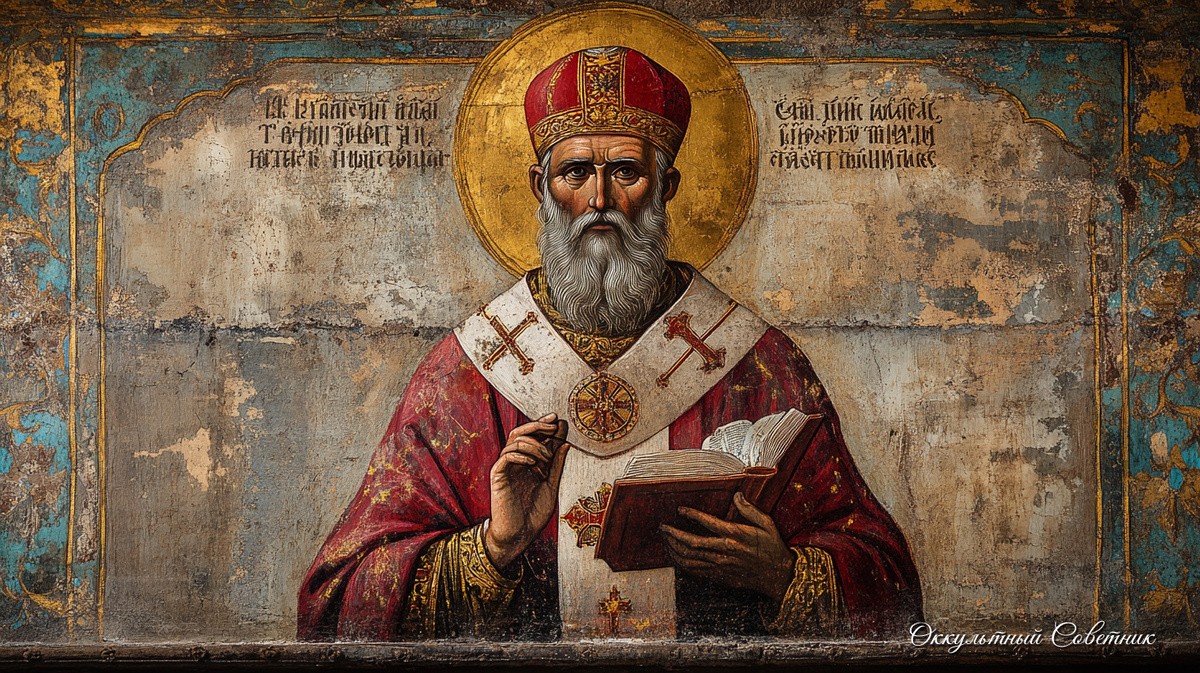Saint Cyprian of Carthage: From Black Magic to Christian Bishop and Martyr
In late antiquity, Cyprian of Carthage was renowned as a powerful magician, feared by many and revered by those who practiced the occult. He could summon storms, unleash plagues, and bend the wills of people, and many sought his help for love, revenge, or wealth. The turning point began when Justina, a young Christian woman from Antioch, refused to be swayed by his magic. A suitor named Aglaid, spurned by Justina, begged Cyprian to win her over with magic, only to see his powers fail against her faith. On the day of Cyprian's baptism, he publicly renounced his old life by burning all his magical books and tools in the city square.

In This Article:
The Making of a Master of the Occult: Born into Wealth, Trained in Darkness
Cyprian was born in the mid-3rd century in Carthage, into a wealthy pagan family, which opened doors to education and opportunity. From a young age he showed extraordinary talent and a thirst for knowledge, pursuing the hidden and supernatural. He traveled across the known world—Egypt, Chaldea, and India—learning from the best magi of his time, mastering necromancy, astrology, and alchemy, quickly surpassing his teachers. Back in Carthage, Cyprian earned fame as a formidable black mage who could conjure storms, spread disease, and bend the wills of others; many sought his aid in love, revenge, or wealth.

The Turning Point: Faith That Defied His Power
The turning moment came when his powers met their match in the face of Christian faith. Justina's steadfast faith, expressed in prayer and the cross, repelled his enchantments. Aglaid, spurned by Justina, asked Cyprian to help win her, but his magic proved powerless. This failure forced him to confront a deeper question: where does true power come from, and what is life for? He began studying Christian teaching, recognizing that the limits of magic could not match the promises of faith.

Conversion and Rise: From Penitent to Priest and Bishop
After a long internal struggle, Cyprian went to Bishop Anfim, confessed his past, and asked to be baptized. On the day of baptism, he publicly renounced his former life, burning his magical books and tools to seal his conversion. He devoted himself to Scripture and the life of the Church, using his knowledge and eloquence to spread the Gospel and oppose pagan practices. Within a year of baptism he was ordained a priest; in 248 he was elected Bishop of Carthage. As bishop, he became a respected leader, writing on ecclesiology—most notably the unity of the Church—and shaping his era's liturgical life and understanding of baptism and the Eucharist.

Persecution, Martyrdom, and Enduring Legacy
In 257, as Emperor Valerian intensified persecutions of Christians, Cyprian remained a steady shepherd of his people. He was arrested in August 257 and offered a chance to renounce Christ and sacrifice to Roman gods, but he refused. Exiled to Curubis, he continued to guide the faithful through letters and pastoral care. A year later, in September 258, he was brought back to Carthage and executed by sword. He died on September 14, 258, praying and blessing his executioners. He is remembered as a great church father and martyr; his feast day is October 2 (October 15 by the New Style). He is invoked against witchcraft and sorcery.


